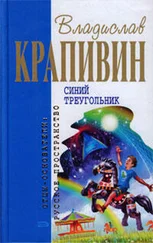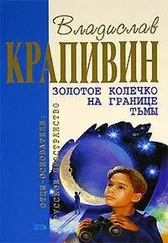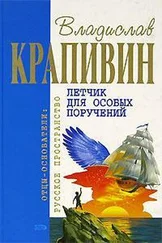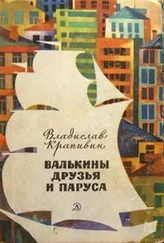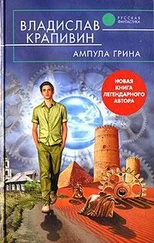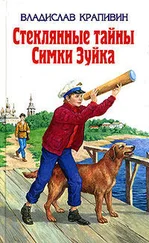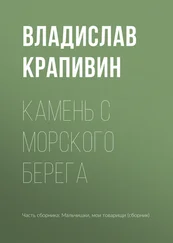Владислав Крапивин - I am going to meet my brother
Здесь есть возможность читать онлайн «Владислав Крапивин - I am going to meet my brother» весь текст электронной книги совершенно бесплатно (целиком полную версию без сокращений). В некоторых случаях можно слушать аудио, скачать через торрент в формате fb2 и присутствует краткое содержание. Город: Moscow, Год выпуска: 1968, Издательство: MIR Publishers, Жанр: Фантастика и фэнтези, на английском языке. Описание произведения, (предисловие) а так же отзывы посетителей доступны на портале библиотеки ЛибКат.
- Название:I am going to meet my brother
- Автор:
- Издательство:MIR Publishers
- Жанр:
- Год:1968
- Город:Moscow
- ISBN:нет данных
- Рейтинг книги:3.5 / 5. Голосов: 2
-
Избранное:Добавить в избранное
- Отзывы:
-
Ваша оценка:
- 80
- 1
- 2
- 3
- 4
- 5
I am going to meet my brother: краткое содержание, описание и аннотация
Предлагаем к чтению аннотацию, описание, краткое содержание или предисловие (зависит от того, что написал сам автор книги «I am going to meet my brother»). Если вы не нашли необходимую информацию о книге — напишите в комментариях, мы постараемся отыскать её.
I am going to meet my brother — читать онлайн бесплатно полную книгу (весь текст) целиком
Ниже представлен текст книги, разбитый по страницам. Система сохранения места последней прочитанной страницы, позволяет с удобством читать онлайн бесплатно книгу «I am going to meet my brother», без необходимости каждый раз заново искать на чём Вы остановились. Поставьте закладку, и сможете в любой момент перейти на страницу, на которой закончили чтение.
Интервал:
Закладка:
The fourth sun
"Of course, neither the pilots nor the boy knew the reasons for our strange decision," said Alexander. "The reason was perplexity. Not the ordinary perplexity that can be caused by unexpected news, but a kind of helplessness and panic. What could we reply?
"I won't say anything about the flight. They are all alike, unless there's an accident. Work and long sleep in a state of anabiosis. Half a century had passed on Earth and about twelve years in the ship when, having gone into orbit round Yellow Rose, we at last approached the planet.
"At first we felt the bitterness of an unsuccessful search. Before us we saw a land of ice-without life, without the rustle of forests, without the splashing of waves. Shrouded in a haze of cold mist, the great bright yellow sun could be seen above the broken contours of the mountains. It certainly did resemble a yellow rose. The frozen ocean shimmered with pinks and yellows. The clefts in the rocks, the cracks in the ice, the shadows of the gloomy precipices-all were deep blue. Ice… A cold glitter… Silence.
"The only thing to cheer us up was the air- real, almost terrestrial air, only as cold as a mountain spring. The very first day we discarded our helmets and breathed it with our teeth clenched from the cold. We were heartily sick of the chemically pure insipid air of the ship's compartments. I myself believe that is what causes nostalgia for Earth so agonizing that it's terrible even to think about. But there, on the Snow Planet, We no longer suffered that so acutely. There was something congenial to humans in that frozen world, ice-bound by the cold, but we did not realize it at first. Each time we left the frigate, we saw only a kingdom of snow, rock, and ice."
They saw deep gorges clouded with a blue haze. The broad flat rays of the sun turned from orange to green as they penetrated into the ravines through fissures in their steep walls and broke up into hundreds of emerald sparks amid the broken ice. When the rays reached the bottom, the mass of ice crystals sparkled in a cluster of fantastic lights.
Through the windows of the "Magellan" the sky looked at night like a black wall with the broken outlines of blue constellations on it. At times the high transparent clouds would begin to shimmer with a yellowish light which streamed over the icy faces of the mountains, lighting up great rock cliffs in the darkness.
But yet it was not dead, this cold planet. Sometimes heavy clouds would come from the west, shrouding the orange sinking sun and sweeping the hideous black shadows off the ice. And then it would begin to snow, real snow, like that on the coast of the Kara Sea or around the cities of the Antarctic. It melted on the palms of their hands, turning to ordinary water. And the water would get warm.
And once, they discovered a valley in the southern hemisphere where there was neither snow nor ice. There the rocks were bare, the stones silvery with moisture, and there was gravel on the banks of the unfrozen brook. A sparkling waterfall, surrounded by hundreds of tiny rainbows, thundered among the rocks. It seemed to want to waken the world slumbering in the cold.
Not far from the waterfall Kar discovered a small plant with black leaves clinging to the rock face. He took off his glove with the intention of pulling the slender knotty stalk, but the pointed black leaves suddenly jerked and bent towards his hand. Kar automatically pulled his hand back. "Don't touch it," advised the cautious Larsen. "Who knows what it is?" But Kar had his own ideas. A sly smile flickered on his lips. He passed his hand over the little black shrub and once again its slender leaves bent towards him.
"It's attracted by the warmth," said Kar in a soft voice, and then he shouted to the biologist, who had fallen behind: "Thael! Here's a real discovery for you at last!"
At that moment the navigator did not fully understand the importance of his discovery.
In the evening they all gathered in the mess-room of the "Magellan". There were five of them: blond, broad-shouldered Knud Larsen, good-natured and absent-minded in everything not connected with computers; two Africans-the merry little biologist Thael and the navigator Tey Karat, who was always called simply Kar; the pilot and astronomer George Rogov, who was fair-haired like Larsen, but swarthy like the Africans, and was the youngest member of the crew; and finally, Alexander Sneg, who was the reconnaissance navigator and artist. Lately he had been so engrossed with his sketches that he had handed over command to Kar.
When they had assembled, Kar said: "It's a strange planet, isn't it? But one thing is obvious: if it weren't covered with ice, there'd be life on it. The sun, Yellow Rose, I mean, will thaw the ice one day: that's obvious. But we don't know how many millennia that will take. Should we melt the ice ourselves?"
He suggested firing four artificial suns above the Snow Planet in line with Vorontsov's system. This was an old and fairly simple system, which had been used to create atomic suns above Earth in the first decades after men, having destroyed all weapons, had been able to apply nuclear energy to peaceful uses. It was then that the ice of Greenland and the coastal regions of the Antarctic had been melted.
"But why four?" asked George.
"That is the minimum. You can't have fewer than four-otherwise all the ice will not be melted and eternal winter will once again spread over the whole planet."
But four suns would use up two-thirds of their remaining stellar fuel. That meant the cosmonauts would be unable to accelerate sufficiently and that they would not get back to Earth before two hundred and fifty years. They would have to spend the major part of the flight in a state of anabiosis-two hundred and fifty years. But they would have given men a planet which could become a new outpost of mankind in space. Their distant search would not have been fruitless.
"What do we need for this?" asked Larsen.
"Agreement," said Kar, looking round at everybody.
"Yes," said Larsen.
"Of course!" exclaimed Thael.
George nodded, without saying a word.
"No!" rapped out Sneg suddenly, standing up.
A few seconds of surprised silence passed before he began to speak.
He said that it would be stupid to turn the planet into an incubator. Men must not be afraid of bleak ice, of the fight with Nature in the unknown planet. Without struggle life lost its meaning. And then – what if the artificial suns burned out before all the ice had been melted? What would happen to the first inhabitants of the Snow Planet if eternal winter returned? But supposing the suns did not burn out. Supposing the ice did all melt. What would men see then? Bare mountains, treeless plains, grey deserts.
They listened to him, and there were moments when each one was on the point of agreeing with him. Not so much because his actual words were convincing but because his fervour and persistence were so persuasive. Sneg always argued in this manner when he was firmly convinced he was right. It was with the same fervour that he had insisted on Earth on his right to fly to "his star".
His friends remembered how he had stood before a pale, dry man in a large room in the Palace of Stars and said with fierce directness: "I am surprised that the Union of Astronauts could leave the decision on such a question to you alone, a man incapable of believing in legends."
The man had grown even paler, but his irritation was manifested only in the slight hesitancy of his quiet responses: "Every youth who has been beyond the orbit of Jupiter considers himself fit for independent search and ready to fly to the centre of the Galaxy. It's ridiculous. Your head has been turned with fairy tales about the planets of Yellow Rose. Yellow Rose is an insidious star. It's tempting, of course; but it's an eternal truth-the fairy tales are fascinating."
Читать дальшеИнтервал:
Закладка:
Похожие книги на «I am going to meet my brother»
Представляем Вашему вниманию похожие книги на «I am going to meet my brother» списком для выбора. Мы отобрали схожую по названию и смыслу литературу в надежде предоставить читателям больше вариантов отыскать новые, интересные, ещё непрочитанные произведения.
Обсуждение, отзывы о книге «I am going to meet my brother» и просто собственные мнения читателей. Оставьте ваши комментарии, напишите, что Вы думаете о произведении, его смысле или главных героях. Укажите что конкретно понравилось, а что нет, и почему Вы так считаете.

